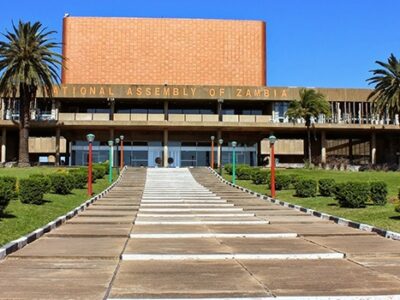Since Zambia’s return to democracy in 1991, the country has promised to uphold human rights and freedoms in line with UN conventions.
However, successive governments have frequently justified the suppression of dissent on grounds of national security and moral considerations.
A prominent example is the Cyber Security and Cybercrimes Act of 2021, enacted during an election year marked by rising public discontent with governance. Critics argue the Act restricts freedom of expression and privacy under the guise of national security.
More recently, the UPND administration announced plans to regulate online broadcasting, including podcasts, which have become increasingly popular.
In May 2024, Chief Government Spokesperson Cornelius Mweetwa highlighted the need for regulation, citing the rapid growth of podcasts and a lack of oversight under the revised Independent Broadcasting Authority (IBA) Act.
Mweetwa pointed out that the IBA Act No. 17 of 2002 has historically lacked provisions to regulate state-owned broadcasters, and that reforms are necessary to align with the Digital Migration Policy.
He also revealed plans to repeal and replace the ZNBC Act to officially recognize ZNBC as a public service broadcaster funded by the public.
A controversial proposal to introduce a US$1,000 fee for hosting live streaming podcasts has drawn significant backlash.
Critics, including Bloggers of Zambia Chief Executive Officer Richard Mulonga, view the fee as an attack on media freedom and free speech.
Human rights activist Laura Miti also condemned the attempt to regulate podcasts, arguing there is no need for statutory control over such platforms.
Information and Media Permanent Secretary Thabo Kawana defended the move, stating that the goal is to issue licenses, not suppress expression. However, the government’s stance has raised concerns about the future of digital rights in Zambia.
Further complicating the landscape, Technology and Science Permanent Secretary Brilliant Habeenzu announced that Section 54 of the Cyber Security and Cyber Crimes Act of 2021 has been invoked to address online hate speech, propaganda, defamation, and child abuse.
This section allows for up to five years imprisonment for offenders, raising fears that it could be used to silence dissenting voices.
Habeenzu reminded citizens and WhatsApp group administrators of their responsibilities under the law, emphasizing the government’s efforts to combat fake news, misinformation, and propaganda through enhanced cyber infrastructure.
To protect the future of digital rights in Zambia, there must be greater tolerance for divergent views expressed through media channels.
Government surveillance of WhatsApp groups and the intimidation of group administrators would mark a severe infringement on free expression.
WARNING! All rights reserved. This material, and other digital content on this website, may not be reproduced, published, broadcast, rewritten or redistributed in whole or in part without prior express permission from ZAMBIA MONITOR.












Comments